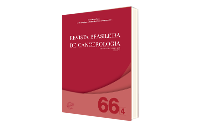Coping Strategies used by Cancer Patients in a Rural City of the Legal Amazon
DOI:
https://doi.org/10.32635/2176-9745.RBC.2020v66n4.626Keywords:
Adaptation, Psychological, Neoplasms/psychology, Psycho- Oncology, Psychosocial Support SystemsAbstract
Introduction: The diagnosis of cancer can provoke innumerous damages to the patient’s life, not only from a medical perspective, but also social and psychological. With its imminent growth and various stressful events resulting from its diagnosis, cancer has become a worldwide public health problem. Therefore, it appears the necessity of personal adaptive processes to the various changes brought by the disease, a process known as coping, through which it is possible to understand which strategies the individual uses to deal with the disease. Objective: To verify the coping strategies used by oncologic patients who attend the “Associação Amor Fraterno”, in Cacoal, State of Rondônia. Method: Quantitative and descriptive study with data from individual interviews. The non-probability sample consisted of 29 patients. The instruments used were the scale of types of coping with problems, perceived stress scale and socioeconomic questionnaire produced by the researchers. Results: The results presented some important considerations: (1) the main mean of access to health cancer patients use is the Unified Health System; (2) prevalence of breast and cervical cancer in women and prostate cancer in men; (3) stress is severer in women than in men; and (4) religious coping was the most used strategy to cope with stress. Conclusion: Based on the results presented, understand that the psychologist’s work with oncologic patients could help to promote coping strategies. In addition, this study suggests expanding public policies to uphold supporting entities.









